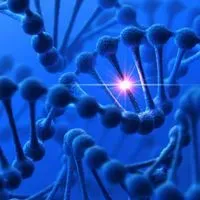ABOVE: © ISTOCK.COM, BLACKJACK3D
For decades, researchers have viewed synonymous mutations as inconsequential quirks of the genome. Due to the way the genetic code is set up—where multiple three-base-pair codons can encode the same amino acid—mutations can arise that don’t change a protein’s amino acid sequence. Scientists have largely dismissed these anomalies as harmless oddities.
But like other historically underappreciated aspects of the genome, scientists are realizing that many “silent” mutations might not be so silent after all. Research suggests they’re often subject to selective pressure and could play a role in cancer, autism, and schizophrenia.
A study published online last week (February 12) in iScience adds to the mounting evidence that synonymous variants can have consequences. The authors describe a synonymous mutation in the gene BAP1 that was associated with a worse-than-expected prognosis in a kidney cancer patient. Their subsequent experiments suggest that the mutation has this effect by ...



















